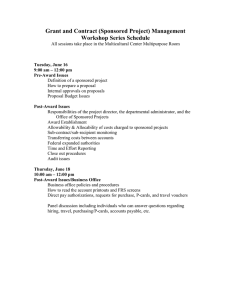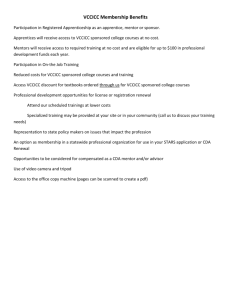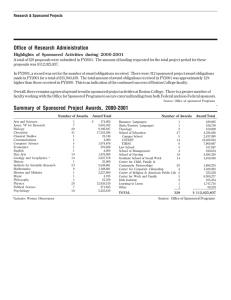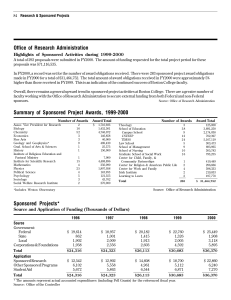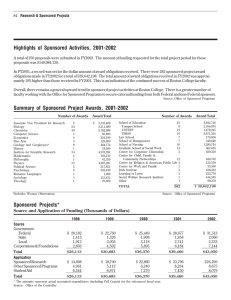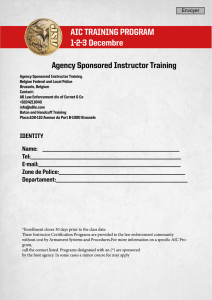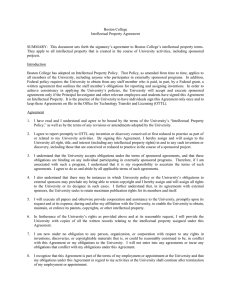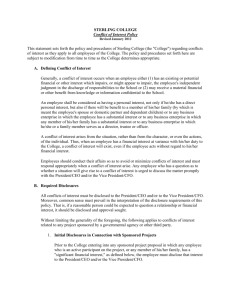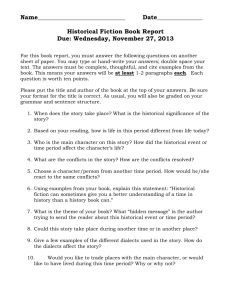Guidelines on Conflicts of Interest
advertisement
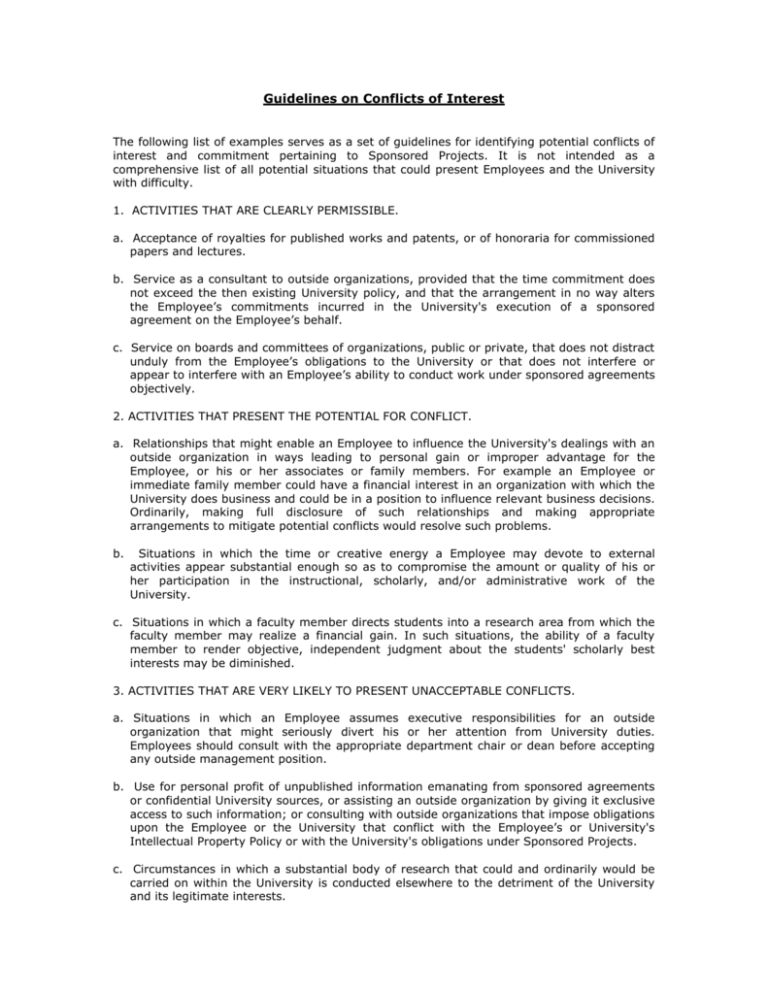
Guidelines on Conflicts of Interest The following list of examples serves as a set of guidelines for identifying potential conflicts of interest and commitment pertaining to Sponsored Projects. It is not intended as a comprehensive list of all potential situations that could present Employees and the University with difficulty. 1. ACTIVITIES THAT ARE CLEARLY PERMISSIBLE. a. Acceptance of royalties for published works and patents, or of honoraria for commissioned papers and lectures. b. Service as a consultant to outside organizations, provided that the time commitment does not exceed the then existing University policy, and that the arrangement in no way alters the Employee’s commitments incurred in the University's execution of a sponsored agreement on the Employee’s behalf. c. Service on boards and committees of organizations, public or private, that does not distract unduly from the Employee’s obligations to the University or that does not interfere or appear to interfere with an Employee’s ability to conduct work under sponsored agreements objectively. 2. ACTIVITIES THAT PRESENT THE POTENTIAL FOR CONFLICT. a. Relationships that might enable an Employee to influence the University's dealings with an outside organization in ways leading to personal gain or improper advantage for the Employee, or his or her associates or family members. For example an Employee or immediate family member could have a financial interest in an organization with which the University does business and could be in a position to influence relevant business decisions. Ordinarily, making full disclosure of such relationships and making appropriate arrangements to mitigate potential conflicts would resolve such problems. b. Situations in which the time or creative energy a Employee may devote to external activities appear substantial enough so as to compromise the amount or quality of his or her participation in the instructional, scholarly, and/or administrative work of the University. c. Situations in which a faculty member directs students into a research area from which the faculty member may realize a financial gain. In such situations, the ability of a faculty member to render objective, independent judgment about the students' scholarly best interests may be diminished. 3. ACTIVITIES THAT ARE VERY LIKELY TO PRESENT UNACCEPTABLE CONFLICTS. a. Situations in which an Employee assumes executive responsibilities for an outside organization that might seriously divert his or her attention from University duties. Employees should consult with the appropriate department chair or dean before accepting any outside management position. b. Use for personal profit of unpublished information emanating from sponsored agreements or confidential University sources, or assisting an outside organization by giving it exclusive access to such information; or consulting with outside organizations that impose obligations upon the Employee or the University that conflict with the Employee’s or University's Intellectual Property Policy or with the University's obligations under Sponsored Projects. c. Circumstances in which a substantial body of research that could and ordinarily would be carried on within the University is conducted elsewhere to the detriment of the University and its legitimate interests. d. Any activity that an Employee may wish to undertake on an individual basis that (a) involves or appears to involve the University significantly through the use of its resources, facilities, or the participation of academic colleagues, students, and/or staff, (b) involves the use of the University's name or implied endorsement, or (c) violates any of the principles set forth in the University Research and Projects Policy (for example, giving the outside organization the right to censor or prohibit publication rights for research any part of which is performed under University auspices).

